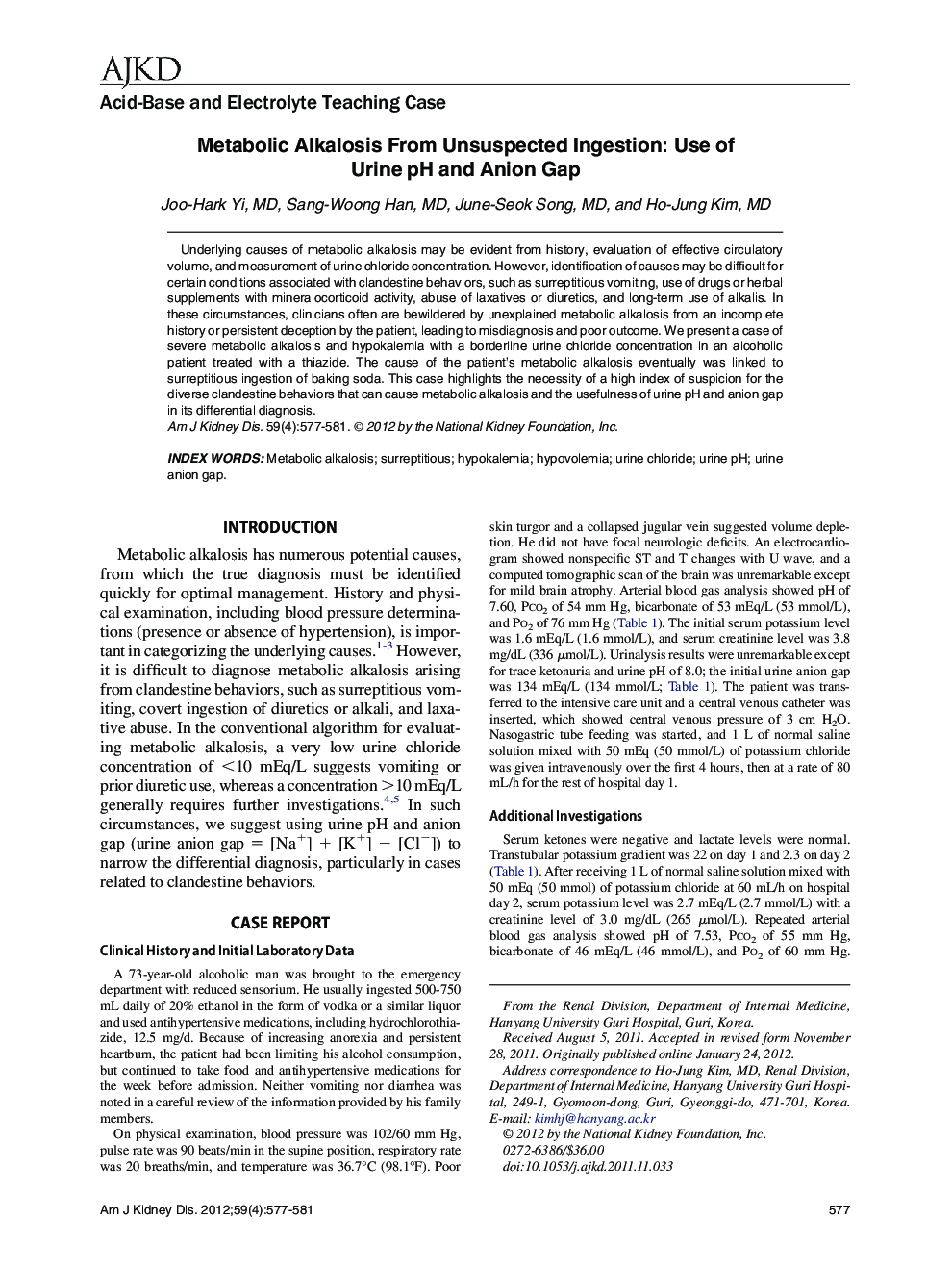| Article ID | Journal | Published Year | Pages | File Type |
|---|---|---|---|---|
| 3849405 | American Journal of Kidney Diseases | 2012 | 5 Pages |
Abstract
Underlying causes of metabolic alkalosis may be evident from history, evaluation of effective circulatory volume, and measurement of urine chloride concentration. However, identification of causes may be difficult for certain conditions associated with clandestine behaviors, such as surreptitious vomiting, use of drugs or herbal supplements with mineralocorticoid activity, abuse of laxatives or diuretics, and long-term use of alkalis. In these circumstances, clinicians often are bewildered by unexplained metabolic alkalosis from an incomplete history or persistent deception by the patient, leading to misdiagnosis and poor outcome. We present a case of severe metabolic alkalosis and hypokalemia with a borderline urine chloride concentration in an alcoholic patient treated with a thiazide. The cause of the patient's metabolic alkalosis eventually was linked to surreptitious ingestion of baking soda. This case highlights the necessity of a high index of suspicion for the diverse clandestine behaviors that can cause metabolic alkalosis and the usefulness of urine pH and anion gap in its differential diagnosis.
Related Topics
Health Sciences
Medicine and Dentistry
Nephrology
Authors
Joo-Hark MD, Sang-Woong MD, June-Seok MD, Ho-Jung MD,
